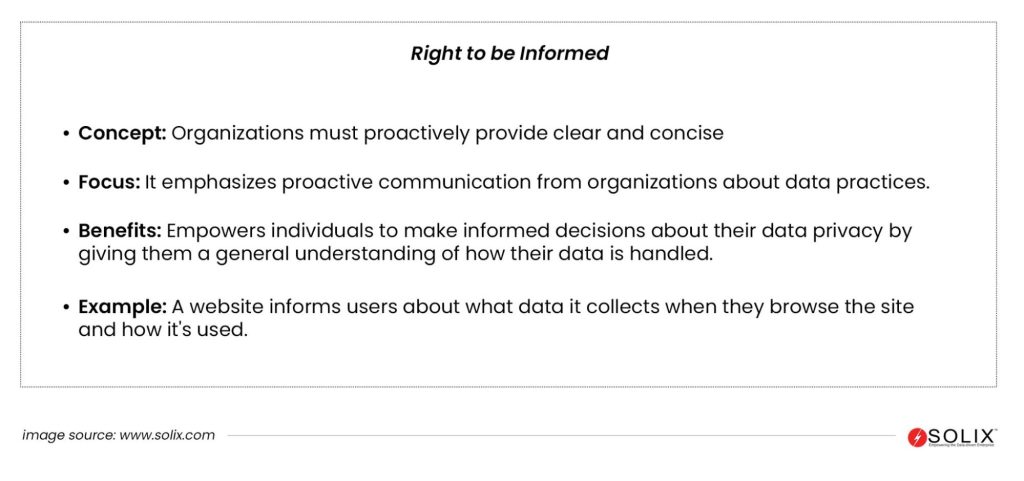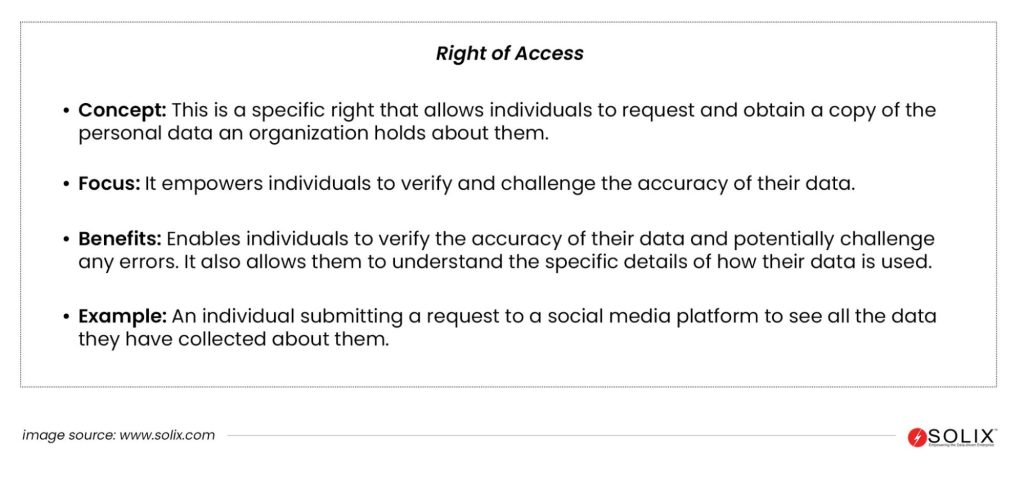Right to be Informed
What is the Right to be Informed?
The Right to be Informed is a fundamental principle guaranteeing individuals the right to access clear and transparent information about how their data is collected, used, stored, and disclosed. Unlike the right of access, where the individual submits a formal request to access a copy of the data held by an organization, RTBI makes organizations proactive in transparent data practice.
Origins and Evolution
The Right to be Informed is rooted in data protection and privacy principles. It gained prominence with the emergence of privacy regulations such as the GDPR and the CCPA. These regulations mandate that organizations provide individuals with clear and concise information about their data processing activities.
Right to be Informed vs Right to Access
| Feature | Right to be Informed | Right of Access |
|---|---|---|
| Initiated by | Organization | Individual |
| Nature of Right | Proactive communication by controllers | Reactive action by the subject |
| Focus | Transparency & Awareness | Verification & Control |
| Information Level | General understanding of data practice | Specific data details |


Key Principles
Let’s delve into some fundamental principles:
- Transparency: Organizations must be open and honest about their data practices.
- Specificity: The information should be specific to the context in which the data is collected.
- Actionability: The information should explain data practices and empower individuals to take action.
- Clarity: The information provided must be unambiguous. It should explain the specific details like when, where, who, and how the data was processed.
- Accessibility: The information about data practices should be readily available through various means, such as prominently displayed privacy policies on websites, downloadable information sheets, or dedicated sections within mobile apps.
Right to be Informed Across Different Privacy Frameworks
Here’s a glimpse into how this right is reflected in some key frameworks:
| Framework | Right to be Informed |
|---|---|
| GDPR (EU) | Yes |
| CCPA (California) | Yes |
| LGPD (Brazil) | Yes |
| CDPA (Virginia) | Yes |
| CPPA (Canada) | Yes |
| HIPAA (US) | Yes |
While the core principle is similar, there might be variations in specific aspects:
- Level of detail: The GDPR prescribes a more detailed level of information compared to the CCPA.
- Scope of application: The GDPR has a broader scope, applying to organizations processing the data of individuals in the EU, regardless of the organization’s location. CCPA applies to businesses that meet specific criteria within California.
- Enforcement mechanisms: The GDPR has stricter enforcement mechanisms with significant potential fines for non-compliance.
FAQ
How can individuals exercise their Right to be Informed?
Individuals can exercise this right by reviewing privacy notices from organizations. They can request information about data processing activities. Additionally, they can raise concerns or objections regarding data usage.
Can organizations use third-party services to fulfill the Right to be Informed requirements?
Yes, organizations can utilize third-party services, such as data protection consultants or compliance software, to ensure they effectively meet the Right to be Informed requirements and other data protection obligations.
Are specific industries or sectors where the Right to be Informed is particularly crucial?
Industries dealing with sensitive personal data, such as healthcare, finance, and technology, emphasize the right due to the potential impact on individuals’ privacy rights and the regulatory scrutiny they face.





